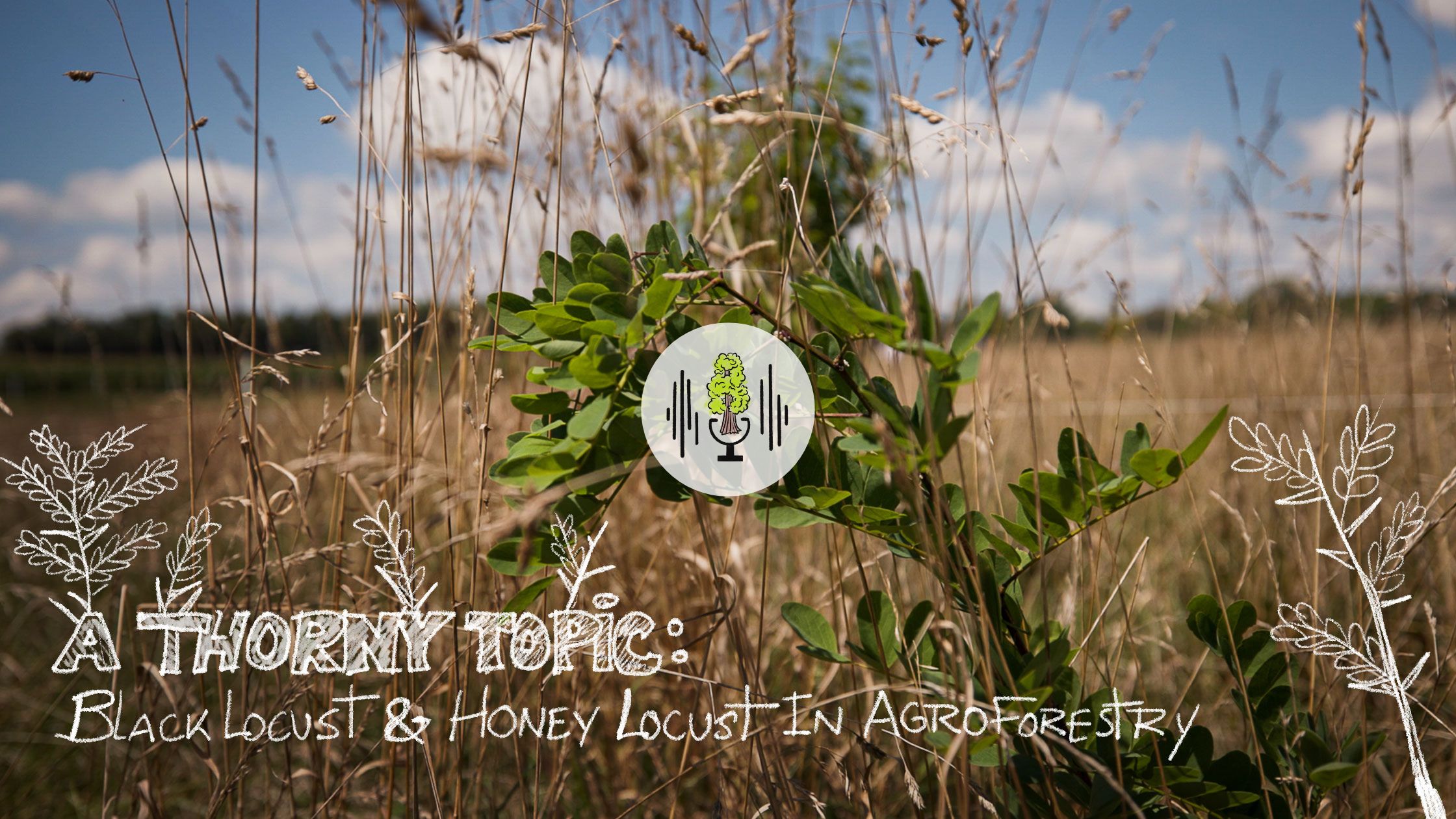We did things a little different for the latest episode of the Perennial AF podcast. Host Jacob Grace picked out short clips of a number of different speakers talking about a single topic.
It’s a thorny topic…literally. The episode is about working with black locust and honey locust trees. Some people love these trees, and some people HATE them. Are these trees a source of untapped potential, or is working with them a mistake that farmers and landowners will come to regret?
Transcript has been edited for brevity and clarity.
Jacob Grace: So, with this episode I was trying to figure out why some people are so bitterly opposed to these trees. A lot of people hate them. Like the first person I talked to, who is a farmer in Missouri… and also happens to be my dad.
So, dad, what do you think about honey locust trees?
Jacob’s dad: I hate them! (Laughs) At the moment, I have a very swollen hand that was poked by a honey locust thorn about three weeks ago. And now I’m going to have to go to the hospital and get it treated.
Now, this has happened to me before. And it’s happened to lots of other people. There’s a second reason I hate honey locust – and “hate” is a little bit of a strong word, but I don’t like them – is because they cause hundreds of thousands of dollars of tire repairs to farmers in the Midwest. On the flip side, it really is a pretty good tree. It makes good firewood. It makes good shade. It grows where a lot of other things won’t grow. And it’s a good, sturdy tree. But, at the moment, with my swollen hand here, which I can’t hardly bend, I really don’t like them at all.
Jacob: And what about black locust?
Jacob’s dad: Black locust is considered one of the densest, heaviest woods in the Midwest. It has a short, strong thorn on it. That’s not really quite as “vicious”, if you want to give them a personality, as the honey locust. But it spreads even worse than honey locust, because it can sprout from its roots. If you plant a black locust tree and don’t pay attention, it will take over an acre in just a few years. It is a really good pollinator tree, has a lot of flowers in the spring, very aromatic, and a lot of pollinators use that tree. And it also makes great firewood because it is so dense, it burns really hot. But I don’t know anybody who likes black locust either.
Links
Silvopasture book by Steve Gabriel

